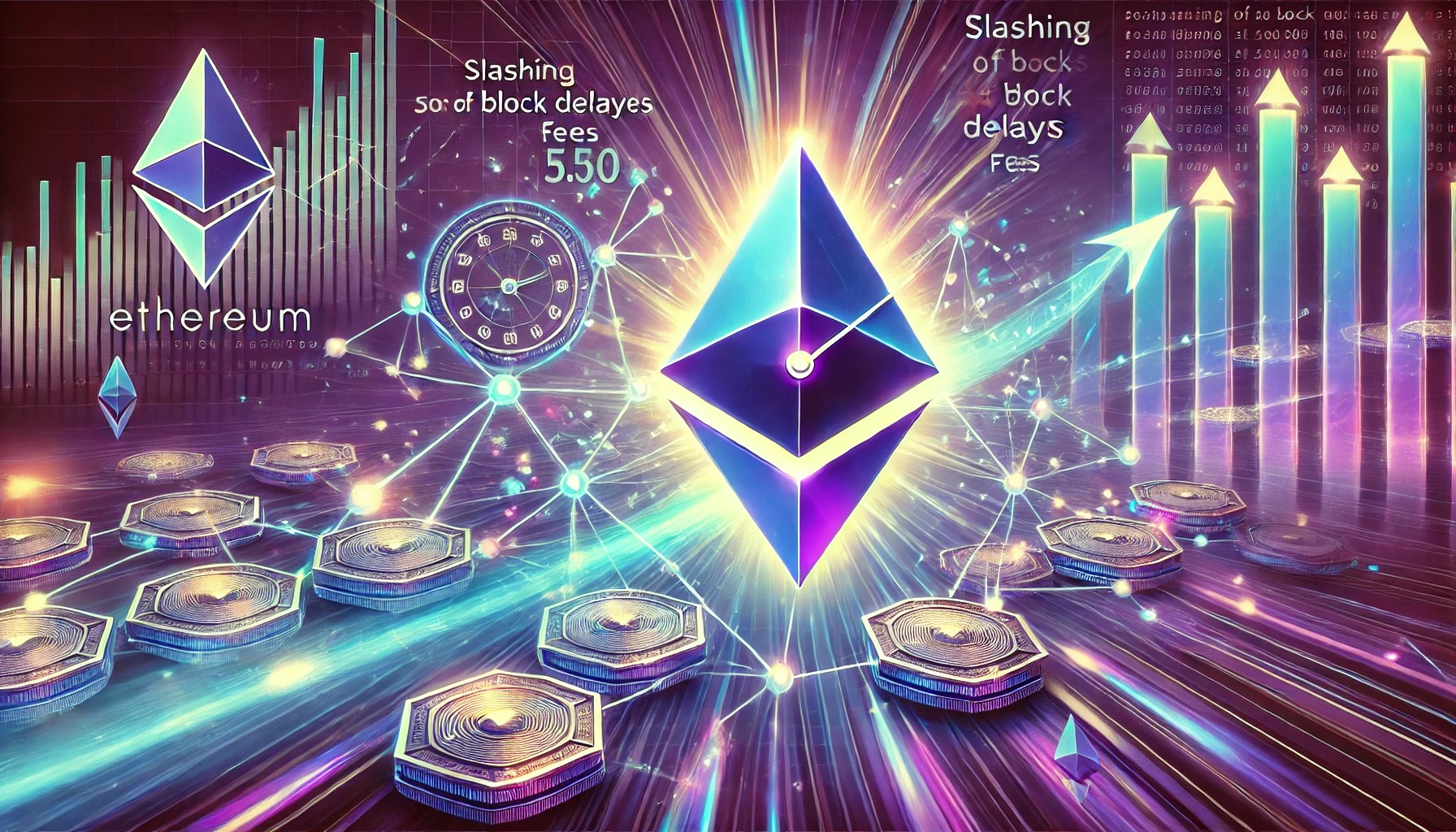Ethereum’s latest game-changing proposal, EIP-7781, promises to slash block delays by 33% while increasing network throughput by 50%. The upgrade is set to revolutionize Ethereum’s transaction speeds and reduce fees across the board.
Ethereum’s Game-Changing Proposal Aims to Slash Delays and Boost Throughput
Ethereum developers have proposed an Ethereum Improvement Proposal (EIP) that, if implemented, will improve data capacity and decrease block delays by 33 percent, resulting in a 50 percent boost to overall throughput.
Ben Adams, co-founder of Illyriad Games, introduced EIP-7781 on October 5th. Its goals are to lower layer-2 network fees by increasing the capacity of blobs, increasing the latency of based rollups, and shorten Ethereum network block timings from 12 seconds to 8 seconds.
EIP-7781 Could Slash Fees and Speed Up Transactions
While most developers are focused on Ethereum L2 networks as scaling solutions, Pseudonymous developer Cygaar stated in an Oct. 6 post on X that EIP-7781 would be the "first huge" step toward enhancing the Ethereum network's base layer.
In addition to boosting throughput on the mainnet, the idea seeks to reduce peak bandwidth needs without raising the number of blocks or blobs by spreading out bandwidth consumption over time.
Ethereum DEXs Could Save Millions Annually
Justin Drake, a researcher at the Ethereum Foundation, expressed his support for the EIP on GitHub, stating that the proposal's immediate objectives were in line with some of the more general aims put forth by Vitalik Buterin, co-founder of Ethereum, and the organization working to scale Ethereum.
Drake asserted that decentralized exchanges like Uniswap v3 would become "1.22x more efficient" and maybe save "roughly $100M in CEX-DEX arbitrage per year and ultimately leading to better execution for users" if block times were reduced.
Shorter Block Times Pose Risks for Lone Stakers
By distributing "peak load" over more slots and lowering confirmation times by 33%, the plan will enhance the user experience of Ethereum smart contracts, as Drake highlighted.
Reducing block times could be risky for lone stakers, according to multiple developers, as reported by Cointelegraph.
Execution state expansion, or the accumulation of more data on a blockchain, may result from shorter block times, necessitating more robust hardware and bandwidth to expedite the propagation of the blockchain's state.
Concerns Raised Over Hardware and Bandwidth Requirements
Assuming the gas cap per block stays the same, Cinnehaim Ventures partner Adam Cochran deemed the increased EIP as "reasonable" in an Oct. 6 post on X:
The future of Ethereum's decentralization efforts may be jeopardized if staker requirements are raised.



 Greg Abel’s First Berkshire Hathaway Shareholder Letter Signals Continuity, Caution, and Capital Discipline
Greg Abel’s First Berkshire Hathaway Shareholder Letter Signals Continuity, Caution, and Capital Discipline  Microsoft Gaming Leadership Shake-Up: Phil Spencer Retires, Asha Sharma Named New Xbox CEO
Microsoft Gaming Leadership Shake-Up: Phil Spencer Retires, Asha Sharma Named New Xbox CEO  DeepSeek AI Model Trained on Nvidia Blackwell Chip Sparks U.S. Export Control Concerns
DeepSeek AI Model Trained on Nvidia Blackwell Chip Sparks U.S. Export Control Concerns  Nintendo Share Sale: MUFG and Bank of Kyoto to Sell Stakes in Strategic Unwinding
Nintendo Share Sale: MUFG and Bank of Kyoto to Sell Stakes in Strategic Unwinding  Boeing Secures $166.8 Million U.S. Navy Contract for P-8A Engineering and Software Support
Boeing Secures $166.8 Million U.S. Navy Contract for P-8A Engineering and Software Support  Samsung and SK Hynix Shares Hit Record Highs as Nvidia Earnings Boost AI Chip Demand
Samsung and SK Hynix Shares Hit Record Highs as Nvidia Earnings Boost AI Chip Demand  Trump Warns Iran as Gulf Conflict Disrupts Oil Markets and Global Trade
Trump Warns Iran as Gulf Conflict Disrupts Oil Markets and Global Trade  Amazon’s $50B OpenAI Investment Tied to AGI Milestone and IPO Plans
Amazon’s $50B OpenAI Investment Tied to AGI Milestone and IPO Plans  Nvidia Earnings Preview: AI Growth Outlook Remains Strong Beyond 2026
Nvidia Earnings Preview: AI Growth Outlook Remains Strong Beyond 2026  Hyundai Motor Group to Invest $6.26 Billion in AI Data Center, Robotics and Renewable Energy Projects in South Korea
Hyundai Motor Group to Invest $6.26 Billion in AI Data Center, Robotics and Renewable Energy Projects in South Korea  OpenAI Hires Former Meta and Apple AI Leader Ruomin Pang Amid Intensifying AI Talent War
OpenAI Hires Former Meta and Apple AI Leader Ruomin Pang Amid Intensifying AI Talent War  Meta Signs Multi-Billion Dollar AI Chip Deal With Google to Power Next-Gen AI Models
Meta Signs Multi-Billion Dollar AI Chip Deal With Google to Power Next-Gen AI Models  Netflix Declines to Raise Bid for Warner Bros. Discovery Amid Competing Paramount Skydance Offer
Netflix Declines to Raise Bid for Warner Bros. Discovery Amid Competing Paramount Skydance Offer 
































